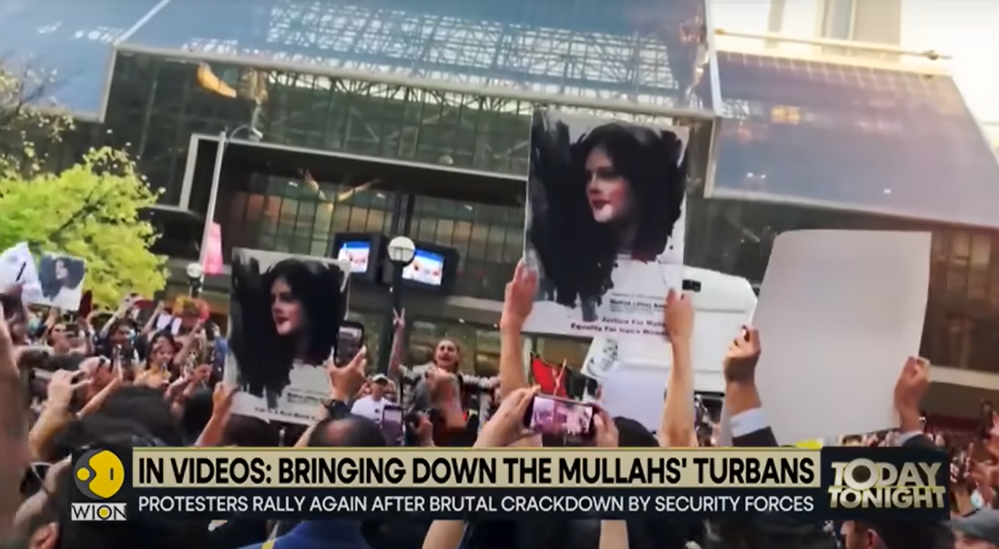The Hijab protest in Iran has been going on for three months now and it manages to challenge the Iranian regime more than any protest wave since the Khomeinist revolution in 1979.
Human rights organizations report 237 deaths during the protests so far, including women and children, and about 8,000 detainees.
The wave of protest succeeded in bringing about the imposition of international sanctions on Iran despite the desire of Western countries to reach a new nuclear agreement with the Iranian leadership.
Public opinion in the US and Europe is greatly affected by the ongoing protest wave in Iran, and this resulted in President Biden declaring to his supporters on November 4 that the “nuclear agreement is dead”, senior American officials say that even if the negotiations on the nuclear agreement are renewed in the future, this is conditional on Iran changing in a drastic way its treatment of the protesters after it had already begun the process of prosecuting and executing them, not to mention those who were killed by live fire from the Basij forces during the protests.
The chances that negotiations on the nuclear agreement will resume are very slim.
The USA and the European Union are angry about the Iranian military aid to Russia in the war in Ukraine and this only increases the pressure on the Iranian leadership.
Sources in Israeli intelligence say that there is the beginning of a change among the Iranian leadership, it is clear that the internal situation in Iran is beginning to change and will not return to what it was before the start of the protest wave.
There are currently no signs that the protest wave will lead to the collapse of the Iranian regime, but the possibility of this happening in the future cannot be ruled out, even the spokesperson of the Chinese Foreign Ministry announced that “the situation in Iran is unstable and a cause for concern”.
The head of the Mossad, David Barnea, expressed this this week in a speech he gave at the President’s Residence in Jerusalem and said:
“We clearly see the supposedly powerful Iranian regime, surprised and frightened, already now the buds of change can be seen in light of the strong currents below the surface”.
There are fears even at the top of the regime, the Supreme Leader Ali Khamenei’s ruling (fatwa) last month stating that protesters must be executed has also sparked outrage among senior officials of the Iranian regime who fear the reactions in the world and the isolation of Iran, according to some reports some of them did not show up for meetings at President Ibrahim Raisi office.
According to intelligence sources in the West, the medical condition of the 83-year-old supreme leader Ali Khamenei is not good, he has advanced cancer and the countdown has begun,
According to the intelligence information, he agreed with his son Mujtaba and President Ibrahim Raisi that his powers will be transferred to them in case he enters a state of medical impotence or dies.
President Ibrahim Raisi, known as the “Butcher from Tehran”, has extensive experience in violent repression and executions of thousands of opponents of the regime over the years by virtue of being the Attorney General and head of the judiciary in Iran.
It seems that the protests in Iran today have become the most dangerous threat to the regime since the Iran-Iraq war in the 1980s, therefore, the assessments of intelligence sources in the West are that the regime will increase the rate of executions of the protesters to increase its deterrence.
There is great doubt if this will achieve its goal, so far the demonstrators are showing great courage and determination, therefore it is very important that the Western countries strengthen them and increase the sanctions on the Iranian regime in every possible way.
The supreme leader Khamenei is stubborn, it seems that the reports that he abolished the “morality police” are not accurate at all, President Ibrahim Raisi is no less religiously extreme than him, both are not ready to give up the way of violent repression and the executions of the demonstrators, despite the international pressures , but if the protest wave continues there is definitely a chance that it could lead to a change of government, this is a very long process that is difficult to predict how it will end.




